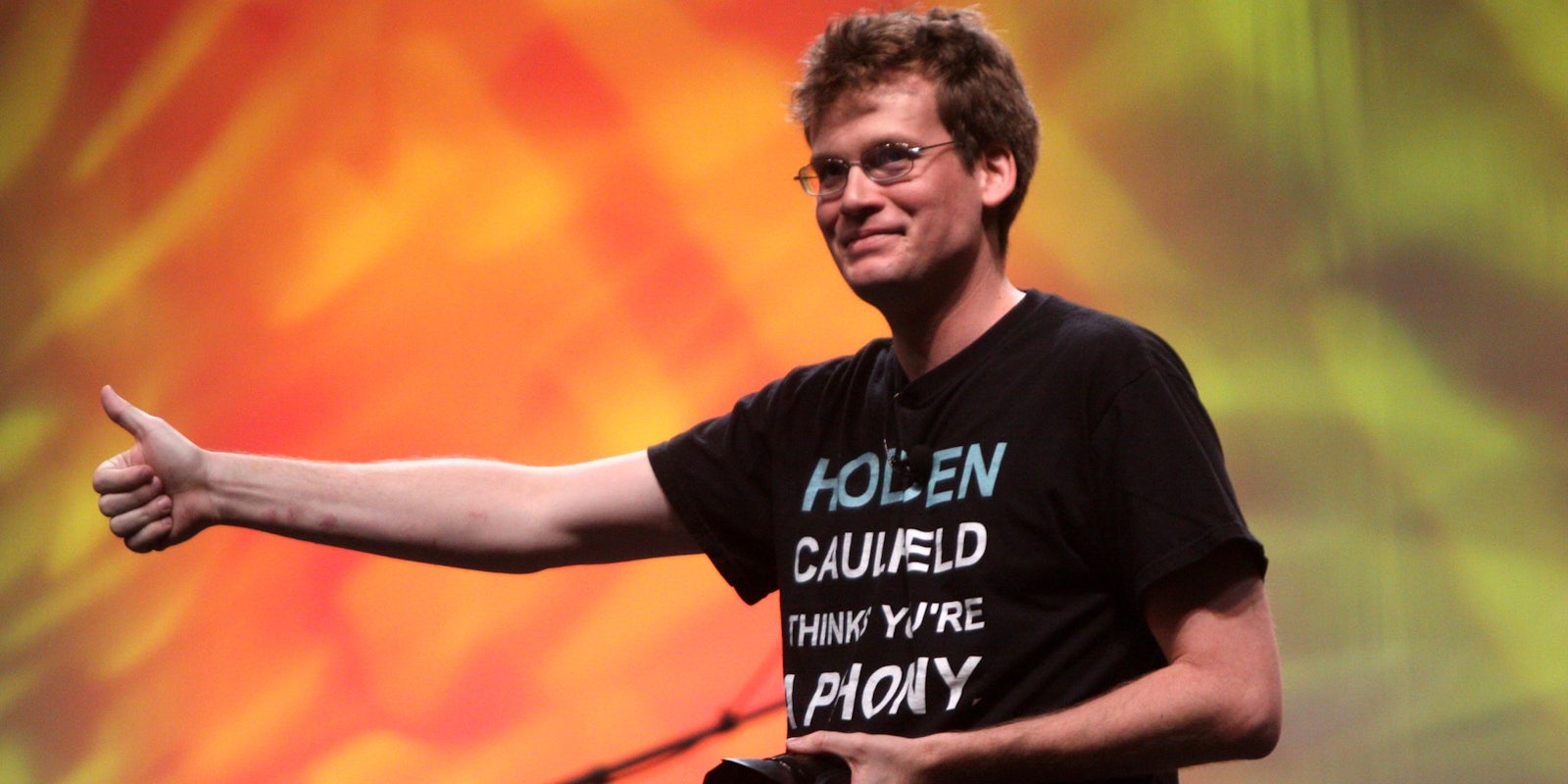If you’re an aspiring novelist, the last thing you need is another thing to be neurotic about. But as I learned at London’s WorldCon and Nine Worlds fan conventions earlier this month, authors are increasingly concerned about their social media presence, often before they’ve even been published.
Both conventions were attended by crowds of established authors, publishing professionals, and unpublished writers, there were plenty of panels dedicated to honing your craft, including the marketing side of things.
Nowadays, social media is obviously a major part of this, with literary agents pointing out that the first thing they do when they receive a decent manuscript is google the author. Obviously having 50,000 Twitter followers will help when promoting your first book, but prioritizing your social media presence is pointless if your manuscript isn’t any good.
According to the various agents and publishers who appeared at WorldCon and Nine Worlds, it’s better to have no social media presence than to have a bad online reputation before you start out. This also ties into the cardinal rule of being an author on social media: Don’t argue with reviews.
Authors break this rule all the time, and it never ends well. If you’re a little-known author trying to argue with people who didn’t like your book, then you’re going to seem petty and immature. If you’re someone like Anne Rice and you decide to enlist your 740,000 Facebook followers to pick a fight with a book blogger, then you’re going to look like a megalomaniac. Unless you’re someone who thrives on controversy like ultra right-wing sci-fi author Vox Day, then this kind of author/critic showdown is only ever going to be a recipe for disaster.
The only good reason for publicly disputing bad reviews is if you think they’re motivated by some kind of hate campaign, such as when feminist author Laurie Penny’s Unspeakable Things inspired a torrent of one-star Amazon reviews and misogynist backlash online. But most of the time when a book receives a lot of harsh criticism, you should turn to the simplest explanation: It’s a bad book, and attempting to proclaim your own genius is only going to make things worse.
For authors of sci-fi, fantasy and Young Adult genre fiction, there’s also the issue of fandom to consider. While Twitter can be incredibly useful when connecting with readers, it also means that authors are far more likely to be exposed to fanfic and fannish critique. The problem here is that a lot of the time, authors assume that they will be treated as an authority figure within fandom, whereas fans think of their community as a private space. This is how you end up with situations like Outlander author Diana Gabaldon alienating thousands of potential readers by comparing fanfiction to “white slavery.”
For most of the authors looking for social media advice at Worldcon, the unfortunate truth is that they are doomed to failure. If you’re using Twitter or Facebook as a cynical tool for self-promotion, then people will notice immediately. The authors who succeed tend to be popular because of their own instincts and personality, such as John Green, whose Internet presence is basically a second job.
Most authors are not and will never be celebrities, so the main purpose of social media is to inveigle yourself into the daily lives of potential readers. Since the publishing process is so glacially slow, this is really the only way you’re going to find an audience unless your publisher is willing to pay for advertising.
If you are interesting enough to warrant a serious following online, then the main payoff is simply reminding people that you exist. Then you just have to hope that you come across as charming enough to warrant a visit to Amazon when your next book comes out. And don’t throw a hissy-fit if someone gives it a bad review.
Photo via Gage Skidmore/Wikimedia


